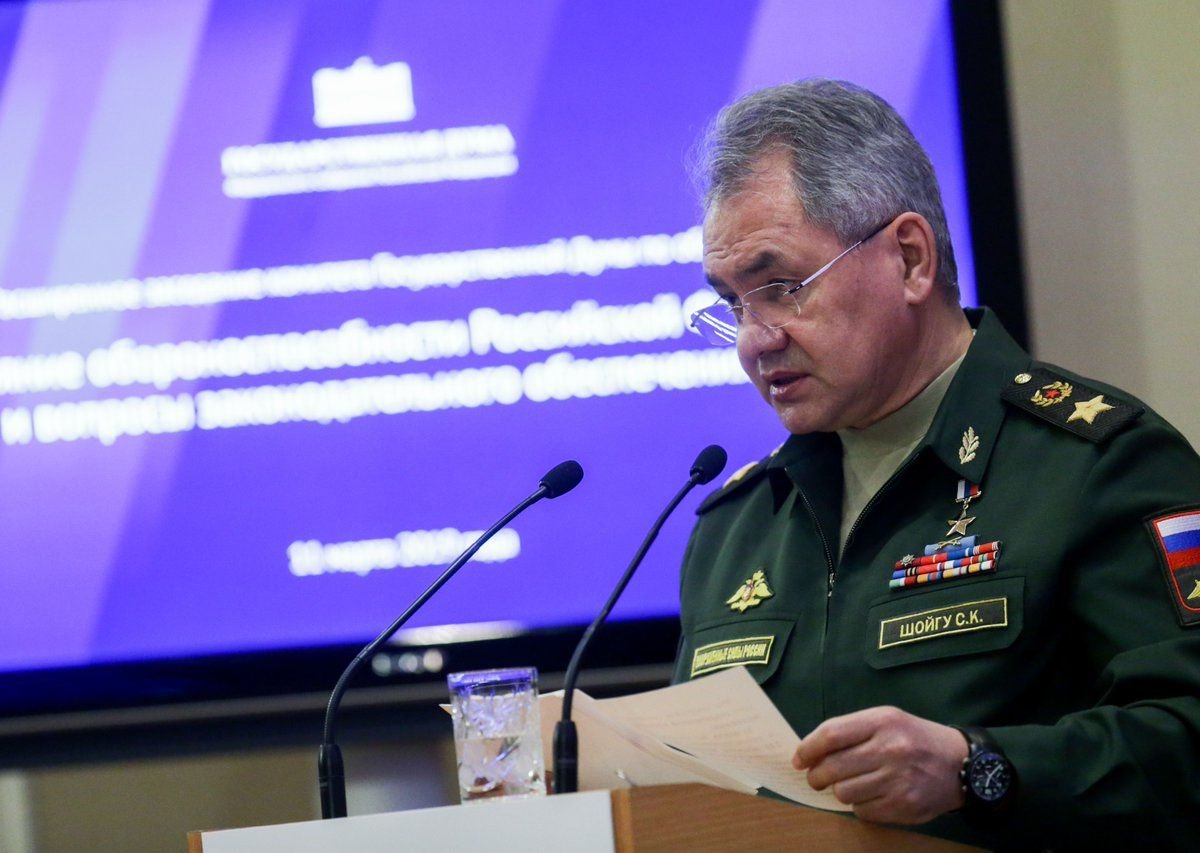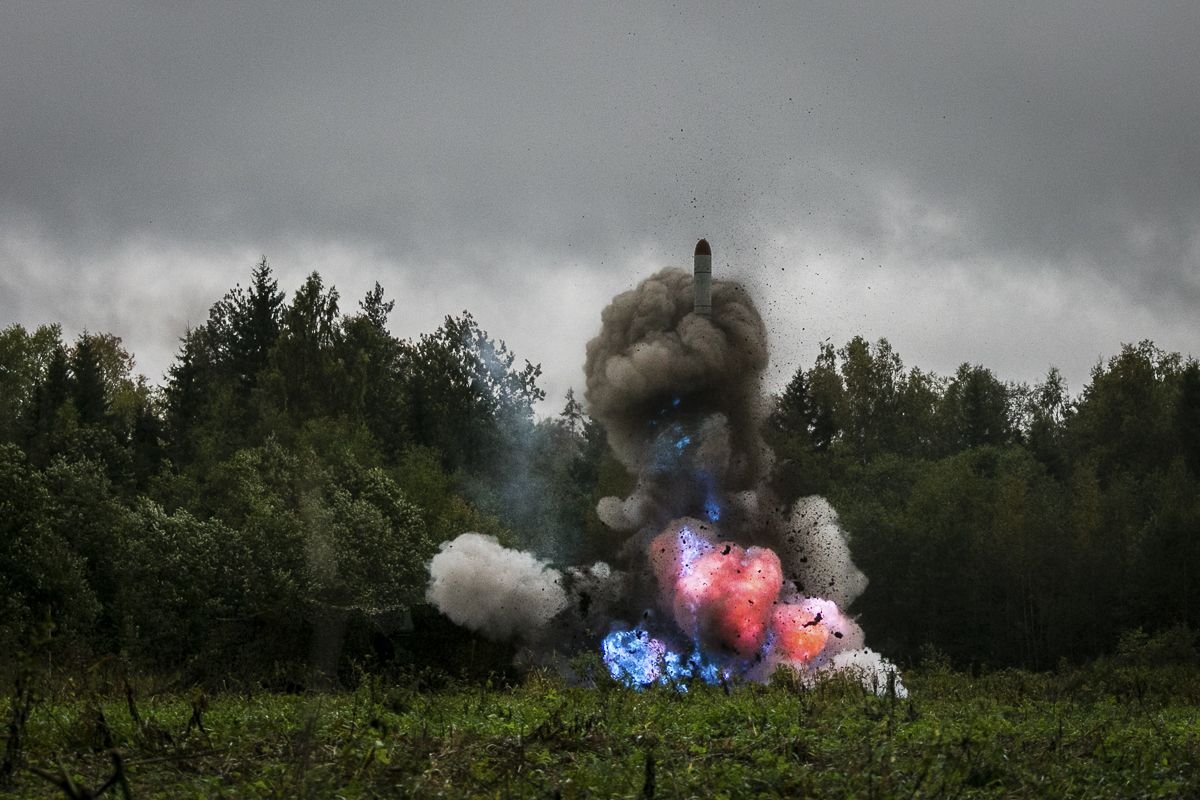The Russian military has come a long way since the formation of the latest government nearly seven years ago, and officials discussed the new capabilities during a recent discussion at Moscow's lower house of parliament.
Russian Defense Minister Sergei Shoigu addressed the State Duma on Monday, explaining to legislators how the country's armed forces have improved since Russian President Vladimir Putin's election in 2012, the same year Shoigu and general staff chief Valery Gerasimov were appointed. Putin had served two terms as president, followed by two more as prime minister, and the Russian leader has increasingly focused on bolstering his country's military posture, especially as relations with the West have faltered.
Shoigu told lawmakers that new assets included 3,000 tanks and other combat-armored vehicles, more than 1,000 aircraft and helicopters and more than 200 ballistic missiles, as well as three Borei-class strategic missile submarines, 57 spacecraft, seven submarines, 17 Bal and Bastion coastal missile systems and 161 warships.
He emphasized that "the Russian army is fully equipped with modern weapons and equipment, and all military units possess constant combat-readiness."

Russia's warfighting capabilities were severely hindered in the period immediately following the collapse of the Soviet Union, leaving what was by far the largest and well-equipped armed forces in the world to fall far behind its U.S. competitor. Though ties between Washington and Moscow improved in this era, Putin's efforts to restore Russia's global influence have met with pushback by successive U.S. administrations.
The feud has played out in international arenas, where the world's two leading military powers have often backed competing agendas. Tensions escalated after a U.S.-supported political uprising ousted former Ukrainian President Viktor Yanukovych in 2014, just as eastern separatists staged a rebellion that Kiev said was backed by Moscow. Russia then annexed the Crimean Peninsula following an internationally disputed vote there.
The U.S. responded by militarizing the eastern borders of the NATO Western military alliance, and Russia responded in kind. As these frictions worsened, the administration of former President Barack Obama accused Putin of attempting to influence the 2016 U.S. presidential race in favor of Republican candidate Donald Trump. Investigations have persisted into alleged ties between Trump's campaign and the Kremlin, a probe that has been tied to dozens of indictments but has no direct evidence of the president's collusion.
Under Trump, the U.S.-Russia relationship has shown little sign of improvement despite repeated attempts by both leaders. The two nations have also accelerated their development of new, advanced military equipment, with Putin showcasing state-of-the-art, nuclear-capable weapons said to be invincible to U.S. systems, and Trump unveiling a proposal for a sweeping overhaul of U.S. missile defense.

The dueling initiatives came as the White House suspended the 1987 Intermediate-range Nuclear Forces (INF) treaty, a key Cold War–era agreement that banned the deployment of nuclear and conventionally armed, land-based missile systems with ranges of 310 to 3,420 miles. Washington has accused Moscow of breaking the deal by developing the Novator 9M729 missile allegedly capable of flying beyond the restricted range, while Russian officials claimed that U.S. defense systems in Europe could be used offensively, another move that would violate the deal's terms.
During his address Monday, Shoigu revealed that the Russian military had doubled the number of its contract soldiers and added ten brigades armed with Iskander missile systems, as the Associated Press noted. The nuclear-capable weapon is related to the 9M729 that the U.S. has called on Russia to destroy.
In addition to the modernization drive, the Russian Defense Ministry said Shoigu discussed "strengthening the army group in the Crimea, developing the military infrastructure in the Arctic, and the experience of the military operation in Syria," where Russia has tested up to 316 pieces of new equipment.
Shoigu then thanked Putin for his efforts, assuring members of the Duma that "we will continue to do everything to increase the combat capability of our army, to make the population of Russia confident that the military security of the state is reliably ensured."
Uncommon Knowledge
Newsweek is committed to challenging conventional wisdom and finding connections in the search for common ground.
Newsweek is committed to challenging conventional wisdom and finding connections in the search for common ground.
About the writer
Based in his hometown of Staten Island, New York City, Tom O'Connor is an award-winning Senior Writer of Foreign Policy ... Read more
To read how Newsweek uses AI as a newsroom tool, Click here.








